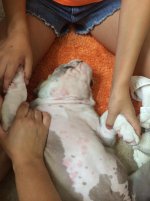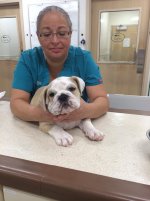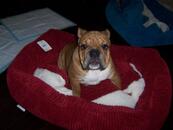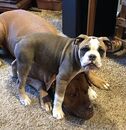jordynliyah
New member
Hello all,
One of you mentioned giving an oatmeal bath when I had posted about Vito having an itchy rash last week. The Benadryl helped great for the first 3 days then it seemed to be almost gone after that. Well yesterday and today have been worse than even before and the Benadryl isn't helping at all anymore. Thankfully my poor baby has a dr appt on Monday and I hope they can figure it out :-/ but I was curious if I give him the oatmeal bath do I need to do anything different than giving a human an oatmeal bath?
Thank you!!
Alisha
One of you mentioned giving an oatmeal bath when I had posted about Vito having an itchy rash last week. The Benadryl helped great for the first 3 days then it seemed to be almost gone after that. Well yesterday and today have been worse than even before and the Benadryl isn't helping at all anymore. Thankfully my poor baby has a dr appt on Monday and I hope they can figure it out :-/ but I was curious if I give him the oatmeal bath do I need to do anything different than giving a human an oatmeal bath?
Thank you!!
Alisha








